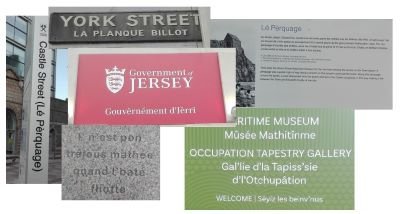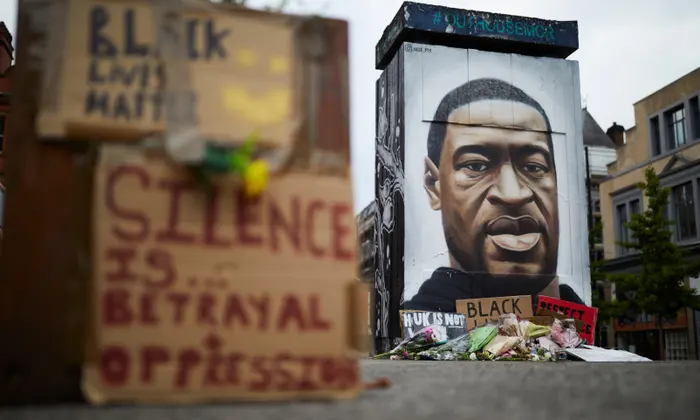Identity politics:
Identity politics is a term that describes politics which is based on a particular identity such as religion, race, gender, social background, class or another identifying factor form. Identity politics aim to eliminate negative behaviours towards particular groups/identities or rectifying injustices suffered by a group of people. Many social issues over the past few years — same-sex marriage, police shootings of unarmed black men, trans people in bathrooms, the fluidity of gender and trigger warnings — are all typically the kinds of issues people mean when they refer to identity politics.
Different political identities:
The groups most commonly associated with identity politics in today’s political environment center on:
- race
- ethnicity
- religion
- gender
- sexual orientation
An interesting reference point in this regard comes from Joe Biden’s 2020 campaign website, on which he listed 19 different identity groups for which he had specific plans. These included:
- tribal nations
- women
- people with disabilities
- Black Americans
- military families
- union members
- rural Americans
- older Americans
- the LBGTQ+ community
- veterans
- the Catholic community
- students/young Americans
- immigrants
- the AAPI (Asian American Pacific Islander) community
- the Indian American community
- the Jewish community
- the Muslim American community
- the Latino community
- the Arab American community
Others would point out that White conservatives or political liberals can also constitute political identity groups.
Jersey Identity Politics:
Identity Politics can also be seen in Jersey, through the local identity / language of Jèrriais. Jèrriais is the traditional language of Jersey, which is closely related to French.
It is very important to the locals of Jersey because it is a part of their heritage. Jèrriais used to be Jersey’s first language and was used during the occupation as people could speak Jèrriais without the Germans understanding, this is why it was very important. Jèrriais was used until the 19th century as a first language for the majority of the population of Jersey; even as late as the beginning of the Second World War. The reason for the decline in using this language is due to the fact that Jèrriais was banned in schools just after WW2. “There was a feeling that English was the future. It was socially desirable to bring up English-speaking children. Speaking anything but English marked you out as a peasant. People were made to feel ashamed. They were ridiculed. There was a perception amongst native Jèrriais speakers that this is our language but it’s a thing of the past. And we’ll die with it.” Jèrriais was then called ‘farmers language’ and anyone who used it was called poor or a peasant.
Before the 1960s, the majority of schoolchildren no longer spoke more than a few words as there was no Jèrriais education in schools, and by the 1980s and 90s, the language had almost completely disappeared from everyday use. Since then, a coordinated campaign has been made to bring the language back since it declined. Over the last decade, the development of an education programme has improved, which means all Jersey children can learn the language at school. By teaching Jèrriais to children we can make sure it has a future and stays a language. There are very few parents able to teach their children the language, so it’s important that it’s taught at school.
Although Jèrriais has slowly become forgotten, and few people use it as an everyday language, there’s still elements of Jèrriais all around the island. For example, it is reflected on street signs all around the island to increase the language’s visibility. This is highly linked to identity politics as people are campaigning to try and bring this language back, to allow people to communicate with a choice of English or Jèrriais. Locals think that having the choice between languages would increase a sense of belonging as an island and bring people closer as they would then have the opportunity to have something in common which is unique and only locals would be able to speak and understand the language fluently.

Culture wars:
Culture wars are types of conflicts between groups that have different cultural ideals and beliefs. The term is commonly used to describe contemporary politics in western democracies with issues such as abortion, homosexuality, transgender rights, racial viewpoints and other cultural conflicts based on peoples views and values. Some people claim that culture wars do not describe real behaviour, or that it describes only the behaviour of a small political elite. Others claim culture war is real and widespread, and even that it is fundamental to explaining Americans’ political behaviour and beliefs.

One example of a culture war is the Black Lives Matter movement, a political and social movement that seeks to highlight racism, discrimination, and racial inequality experienced by black people, and promote anti-racism. This first emerged in the Us in 2013. While the movement spread beyond the US over the following years, what really transformed it into a global phenomenon was the murder of George Floyd at the hands of a Minneapolis police officer, Derek Chauvin, in May 2020. An estimated 15 to 26 million people participated in the 2020 Black Lives Matter protests in the United States after the death of Floyd, making it one of the largest movements in the country’s history. Black Lives Matter protests have been overwhelmingly peaceful; when violence does occur, it is often committed by counter-protesters. Despite this, opponents often try to portray the movement as violent.
